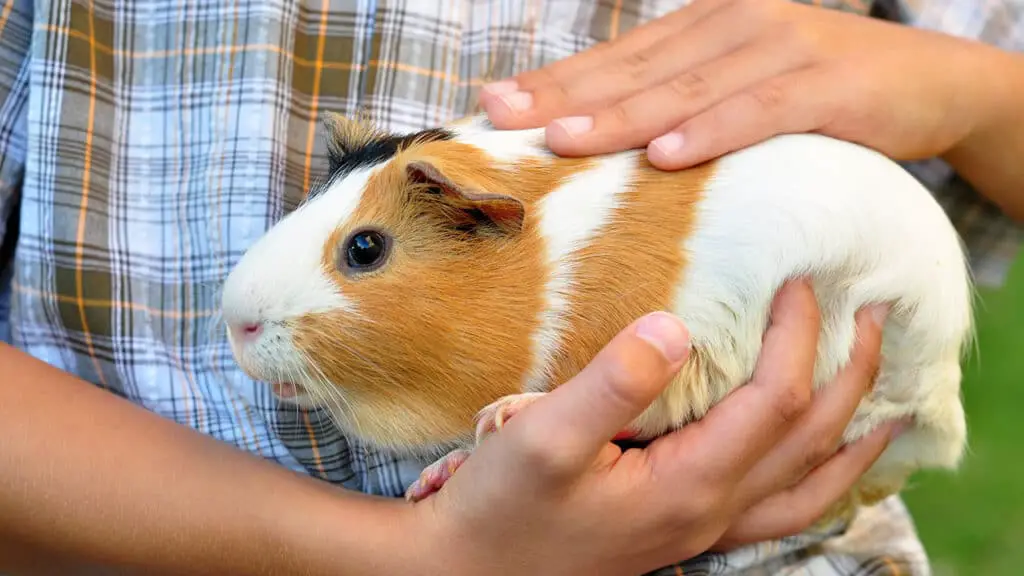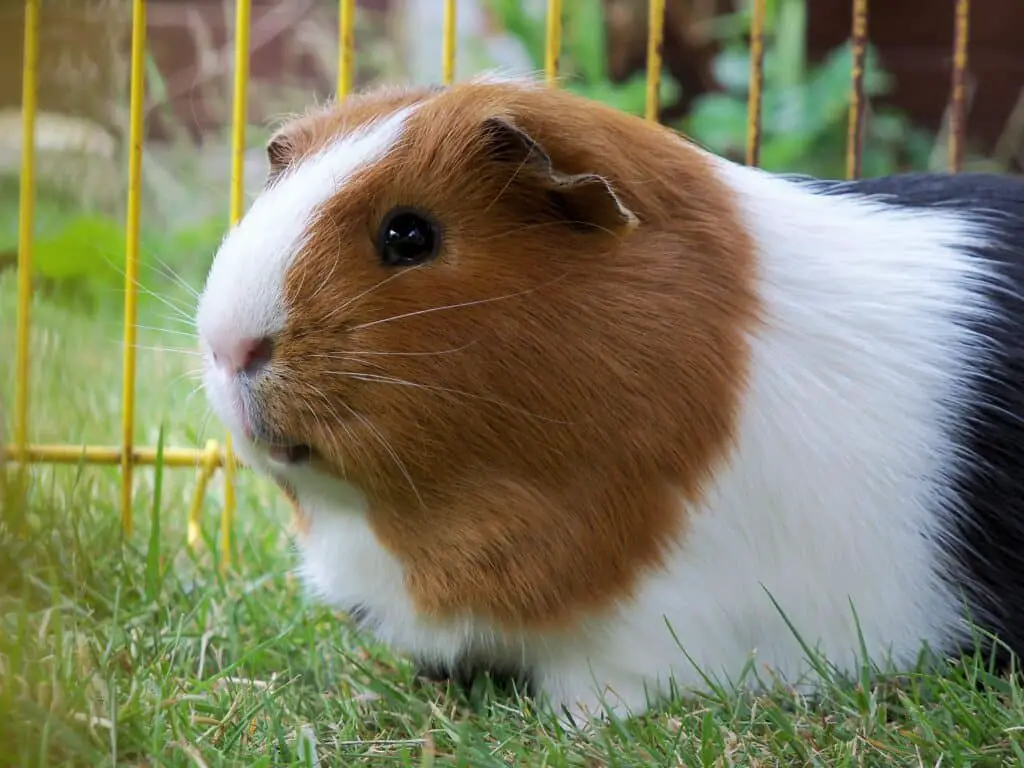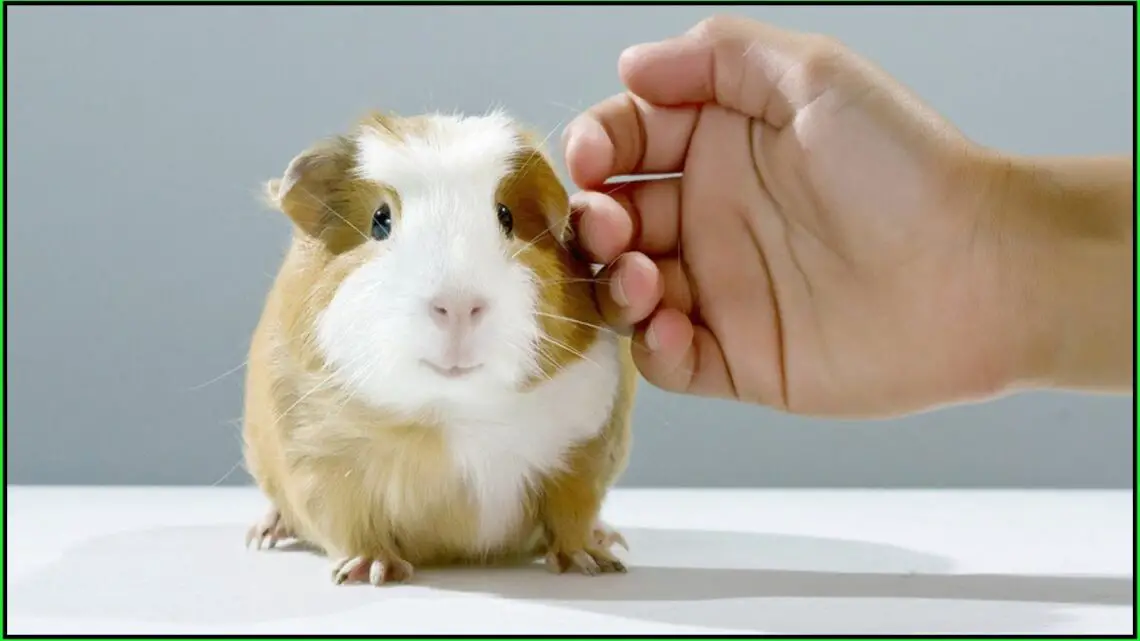Introduction
Do Guinea Pigs Stink: Guinea pigs shouldn’t smell. If they are giving off an unpleasant odor, it’s usually a sign that the cage isn’t clean, their diet is wrong, they’re sick, or they’re struggling to groom themselves. Also, boars may smell more than sows because of an oily buildup around the grease gland. Their endearing squeaks and charming personalities make them beloved additions to many households. However, a common concern that potential guinea pig owners have is whether these furry creatures emit unpleasant odors.
The good news is that guinea pigs are relatively odor-free pets when compared to some other small animals. They have a natural, earthy scent that is not offensive to most people. This scent is primarily attributed to the oils in their skin and the bedding materials used in their enclosures. With proper care and hygiene practices, you can easily manage and minimize any potential odors associated with guinea pig ownership.
Guinea pig odors, how to maintain a clean and odor-free environment for your pets, and some tips to ensure your guinea pigs and your living space stay fresh and pleasant. So, if you’re considering adopting these charming creatures or are already a guinea pig owner looking for odor-control strategies.

Do guinea pig cages smell bad?
Guinea pig pee generally shouldn’t have a strong odour but if the bedding is left too long, it can get unpleasant. And that’s where the problem with smelly cages lies – if the cleaning is left too long, your piggies are literally stinkin’ cute.
Guinea pig cages, when properly maintained, should not emit strong or unpleasant odors. However, like any pet habitat, they can develop odors if not cleaned and cared for regularly. The key to keeping a guinea pig cage smelling fresh lies in understanding the factors that contribute to any potential odors and implementing a proper cleaning routine.
Bedding: The bedding material used in the cage plays a significant role in odor control. Materials like fleece, aspen shavings, or paper-based bedding are absorbent and help reduce odors by trapping moisture and neutralizing ammonia from urine.
Cleaning Routine: Regular cleaning is essential. Remove soiled bedding and feces daily, and replace it with fresh bedding. Weekly, conduct a thorough cage cleaning, including wiping down surfaces, disinfecting if necessary, and replacing all bedding.
Ventilation: Proper cage ventilation can help dissipate odors. Ensure the cage has adequate airflow, but avoid drafts or excessively cold areas.
Diet: A guinea pig’s diet can influence the odor of their feces. Providing a balanced and appropriate diet can help control the smell of their waste.
Hydration: Ensure your guinea pigs have access to clean, fresh water at all times. Dehydration can lead to more concentrated urine, which can be smellier.
Health Check: Sometimes, strong odors can be a sign of an underlying health issue. Regular veterinary check-ups can help ensure your guinea pigs are in good health.
Do guinea pigs smell bad indoors?
Guinea pigs groom themselves, and are relatively clean animals overall they don’t smell bad. Guinea pigs, when housed indoors and properly cared for, typically do not emit strong or unpleasant odors that would make them a nuisance to have inside your home. However, maintaining a clean and odor-free indoor environment for your guinea pigs does require some attention to their needs and living conditions.
Bedding Choice: Selecting the right bedding is crucial. Materials like fleece liners, aspen shavings, or paper-based bedding are highly absorbent and help control odors by trapping moisture and neutralizing ammonia from urine.
Regular Cleaning: Daily spot cleaning is essential to remove soiled bedding and feces. Replace this with fresh bedding to keep the cage clean and odor-free. A more thorough cage cleaning, including disinfection and bedding replacement, should be done weekly.
Ventilation: Adequate ventilation in the room where you house your guinea pigs helps disperse any potential odors. However, avoid drafts or placing the cage in excessively cold areas.
Diet and Hydration: Proper nutrition and hydration are essential. A balanced diet can help control the smell of their waste. Ensure they have access to clean, fresh water at all times.
Health Check: Strong or unusual odors can sometimes be an indication of a health issue. Regular veterinary check-ups can ensure your guinea pigs are in good health.
Diligent care and attention to cleanliness and proper maintenance, guinea pigs can be kept indoors without causing unpleasant odors. Their natural scent is relatively mild, and the key to an odor-free indoor environment is providing them with a clean and healthy living space.
How bad does guinea pig poop smell?
Guinea pig poops should not normally smell. If they do it could be the caecotrophs that you’re observing or a sign of infection. Changes in guinea pig poops are rare as a result of infection, it is much more commonly due to diet, inability to eat normally (teeth), or altered gut motility.
Guinea pig poop generally has a mild and inoffensive odor, making it one of the less offensive types of pet waste. Several factors contribute to the relatively low odor level of guinea pig feces:
Herbivorous Diet: Guinea pigs are strict herbivores, mainly consuming hay, fresh vegetables, and specially formulated pellets. Their plant-based diet results in feces that are less pungent compared to the waste of carnivorous or omnivorous animals.
High Fiber Content: Guinea pigs require a high-fiber diet for proper digestion. This leads to well-formed feces that tend to have a milder odor. Fiber aids in digestion and minimizes the production of foul-smelling gases.
Hydration: Adequate hydration also plays a role. Well-hydrated guinea pigs tend to produce less concentrated urine and feces, which can reduce any potential odor.
Clean Living Conditions: Regular cage cleaning and bedding changes help prevent the buildup of odors. A clean living environment contributes significantly to keeping the overall smell in check.
While guinea pig poop itself is not particularly noxious, it’s important to remember that maintaining cleanliness in their enclosure is vital for a pleasant indoor environment. Regular cleaning routines, fresh bedding, and good ventilation are essential to ensure your guinea pigs and your living space remain odor-free and comfortable.
Do guinea pigs need baths?
Bathing your guinea pig is not only essential to his well-being, it is also an excellent way for you to build a trusting relationship. You should bathe your guinea pig at least every two months, or more often if his coat is looking particularly oily.
Guinea pigs typically do not require regular baths like some other pets, such as dogs or cats. In fact, bathing guinea pigs too frequently can be detrimental to their health. Here are some key points to consider:
Self-Grooming: Guinea pigs are generally fastidious groomers and will clean themselves by licking their fur. They are quite efficient at keeping themselves clean, so unless there is a specific reason for a bath, it’s best to let them manage their grooming.
Skin and Coat Health: Frequent bathing can strip the natural oils from a guinea pig’s skin, which may lead to dryness, itching, and skin problems. These oils help maintain the health and luster of their fur.
Stress: Guinea pigs can find baths stressful, and stress can have adverse effects on their well-being. They may become frightened or agitated during the process.
When to Bathe: There are specific situations when a guinea pig may need a bath, such as if they have soiled themselves with urine or feces, or if they have a skin condition requiring treatment prescribed by a veterinarian. In such cases, use a mild, specifically formulated small animal shampoo and ensure the water is warm but not too hot.
Instead of frequent baths, focus on maintaining a clean living environment for your guinea pigs. Regularly clean their cage, provide fresh bedding, and ensure they have access to clean water and a well-balanced diet. This will help keep your guinea pigs healthy and clean without the need for unnecessary baths. If you have concerns about their grooming or hygiene, consult with a veterinarian for guidance.
Is it ok to keep guinea pigs in your bedroom?
Guinea pigs can live indoors or outdoors, so long as they have enough space and you can keep them at a comfortable temperature in the summer heat or bad winter weather.
Guinea pigs can also keep in their own heated outhouse, a car-free garage or a shed. Keeping guinea pigs in your bedroom is generally acceptable, but there are important considerations to ensure both your pets’ well-being and your comfort.
Noise and Activity: Guinea pigs are generally quiet animals, but they do make sounds like squeaks and rustling bedding. If you’re a light sleeper, their noises might disturb your rest, especially if they are active at night. Consider their activity patterns and whether they’ll be noisy during your sleep hours.
Allergies: Guinea pigs can sometimes trigger allergies in individuals who are sensitive to pet dander. Having them in your bedroom may exacerbate allergies, leading to sneezing, congestion, or skin reactions. Ensure good ventilation and consider air purifiers if allergies are a concern.
Odors: While guinea pigs themselves do not have strong odors, their bedding and waste can produce some scent. Regular cleaning of their cage and using odor-absorbing bedding materials can help keep any odors in check.
Space and Enclosure: Guinea pigs need a proper enclosure with enough space for exercise and exploration. Ensure you have enough room in your bedroom for an appropriately sized cage or pen.
Light and Temperature: Guinea pigs require consistent lighting and temperature conditions. Ensure they receive proper daylight exposure and are not subjected to extreme temperatures in your bedroom.
Cleanliness: Regular cage cleaning is essential to maintain hygiene and prevent odors. Be prepared for the responsibility of daily and weekly cleaning routines.
Does guinea pig urine smell?
Guinea pig wee doesn’t have a foul smell but it does contain ammonia which is the distinctive stink we associate with urine. The faster you clean up after them, the less likely you are to end up with it.
Guinea pig urine does have a distinct odor, but it is generally milder and less offensive than the urine of some other animals. Several factors contribute to the relatively mild scent of guinea pig urine:
Diet: Guinea pigs are herbivores, primarily consuming hay, fresh vegetables, and pellets. Their plant-based diet results in urine that is less concentrated and less odorous than the urine of carnivorous or omnivorous animals.
High Water Content: The high water content in their diet helps dilute the urine, reducing its potential for strong odors.
Cleanliness: Guinea pigs are generally clean animals and tend to urinate in specific areas of their cage. Regular cage cleaning and changing of bedding help prevent the buildup of urine odor.
Adequate Hydration: Ensuring that guinea pigs have access to clean, fresh water at all times is essential. Proper hydration can help minimize the concentration of urine and reduce any potential odor.
While guinea pig urine is not typically overpowering, maintaining a clean living environment for your pets is crucial to prevent any unpleasant smells. Regularly cleaning their cage, providing fresh bedding, and ensuring proper ventilation are key steps in keeping their enclosure and your living space smelling fresh and pleasant.
Do guinea pigs smell like rats?
But a common question, especially from those who are first thinking about getting guinea pigs as pets. It’s fair to say that guinea pigs are generally very clean animals and as long as they are cleaned out regularly, then no, they don’t smell.
Guinea pigs and rats are two distinct animal species, and they have different natural scents. While both animals have their own unique odors, these scents are not typically similar, and they are generally mild compared to some other animals.
Guinea pigs are known for their relatively mild and earthy scent. Their odor is generally not strong or offensive. The scent of guinea pigs is influenced by factors like their diet, cleanliness, and living conditions. With proper care, such as providing a clean living environment and a balanced diet, guinea pigs can be kept with minimal odor.
Rats, on the other hand, have a slightly stronger and distinct musky odor. This odor can vary among individual rats and may be influenced by factors like diet and genetics. Like guinea pigs, regular cage cleaning and proper care can help manage any potential rat odors.
Guinea pigs and rats each have their own unique scents, their odors are generally not overpowering or unpleasant when they are kept in clean and well-maintained living environments. The key to minimizing odors for both species lies in proper hygiene, diet, and living conditions.
Do guinea pigs carry diseases?
There are disease concerns with both wild (rats, mice) and pets (rats, mice, hamsters, gerbils, guinea pigs) , rodents and rabbits. They can carry many diseases including hantavirus, leptospirosis, lymphocytic choriomeningitis (LCMV), Tularemia and Salmonella.
Guinea pigs, like many animals, can potentially carry diseases, but the risk to humans is generally low if proper hygiene and care practices are followed. It’s important to be aware of potential health concerns associated with guinea pigs and take necessary precautions:
Zoonotic Diseases: Guinea pigs can transmit zoonotic diseases to humans. These include bacterial infections like salmonellosis and fungal infections like ringworm. The risk of transmission can be minimized by practicing good hand hygiene after handling guinea pigs or cleaning their cages.
Respiratory Allergies: Guinea pigs can produce allergenic proteins in their urine, feces, and skin cells. These allergens can trigger allergies in some individuals. Regular cage cleaning, using hypoallergenic bedding, and maintaining proper ventilation can help reduce allergen exposure.
Parasitic Infections: Guinea pigs can carry internal and external parasites, such as mites and lice. Regular veterinary check-ups and preventive measures can help control and treat these issues.
Stress-Related Diseases: Guinea pigs can become stressed due to improper handling, housing, or socialization. Stress can weaken their immune system and make them more susceptible to diseases.
To minimize health risks associated with guinea pigs, it’s crucial to provide them with a clean living environment, a balanced diet, regular veterinary care, and appropriate socialization. Additionally, practicing good hygiene when handling guinea pigs and their belongings can help prevent the transmission of zoonotic diseases. If you have concerns about your guinea pig’s health or potential health risks to yourself, consult with a veterinarian for guidance and recommendations.

Conclusion
Guinea pigs are not known for emitting strong or offensive odors when compared to some other pets. Their natural scent is generally mild and earthy. While they do produce waste, including urine and feces, with proper care and hygiene practices, the potential for any unpleasant odors can be effectively managed.
They contribute to the lack of strong odors in guinea pig care including their herbivorous diet, high-fiber content, and clean living conditions. Guinea pigs are meticulous groomers, and they are efficient at keeping themselves clean. Regular cage cleaning and bedding changes, along with proper ventilation, play vital roles in maintaining a pleasant and odor management environment for both the guinea pigs and their owners.
It’s essential to remember that while guinea pigs themselves are not typically a source of strong odors, their living conditions and care routines significantly influence the overall scent in their environment. Proper attention to their dietary needs, hydration, and regular maintenance of their enclosure are key to ensuring a fresh and enjoyable living space for both guinea pigs and their human companions. With the right care and commitment, guinea pigs can be delightful, low-odor pets that bring joy to any household.


No Comments